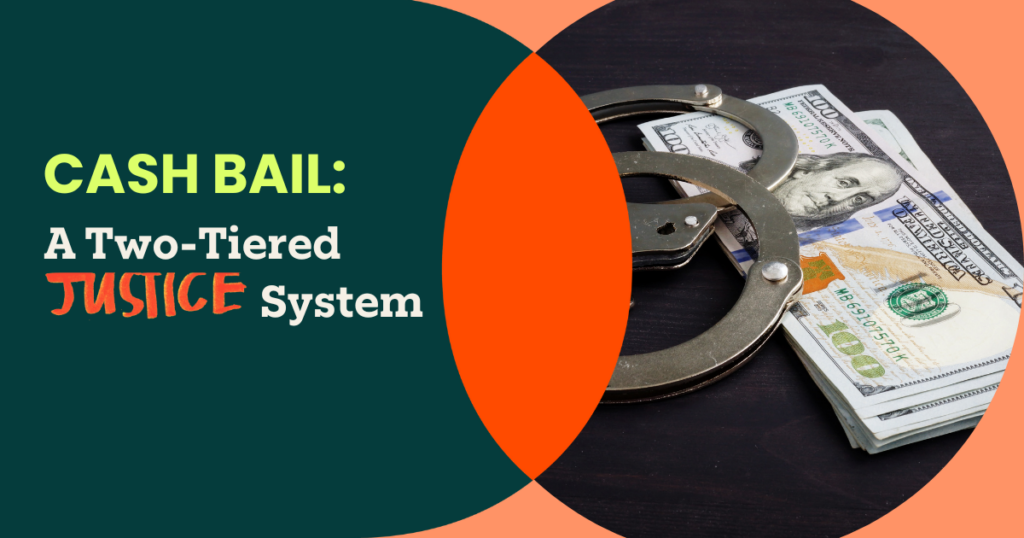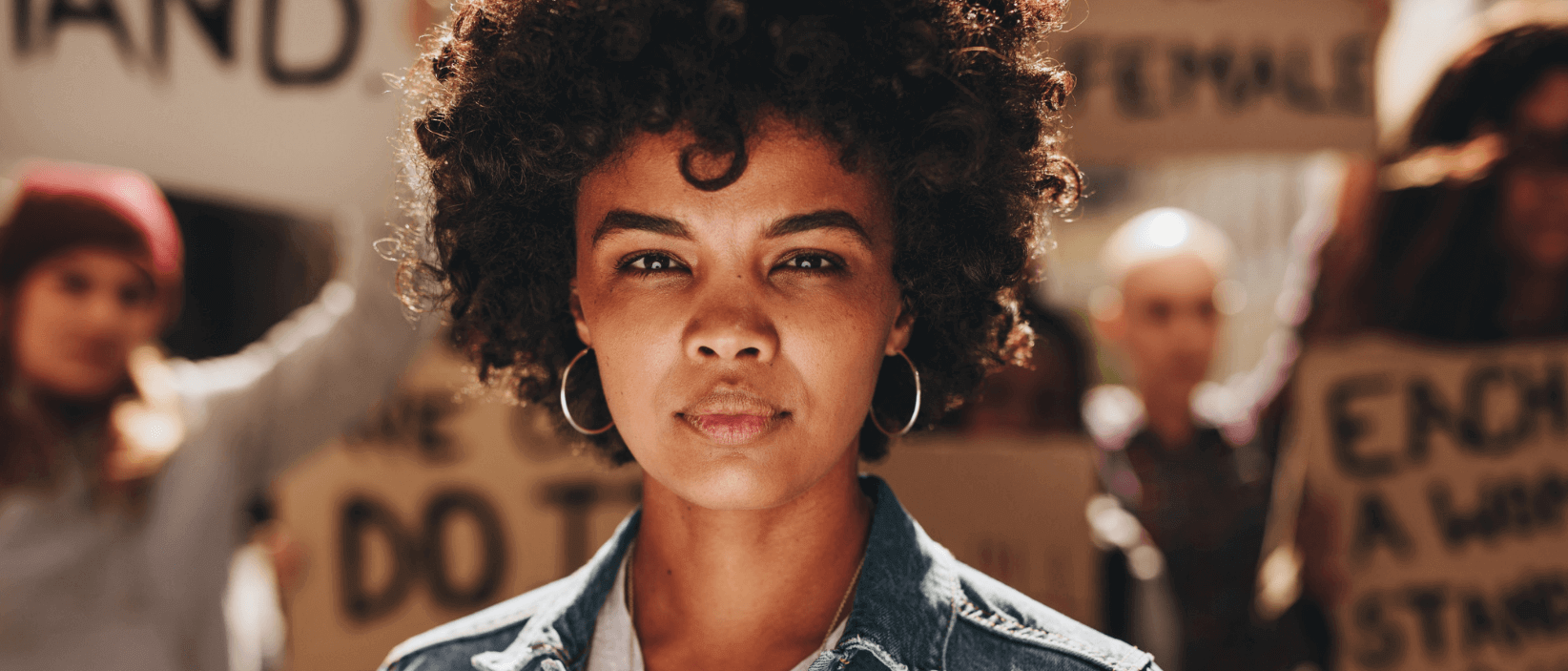A Tale of Two Bails: The Case for Cash Bail Reform

"The law presumes that persons charged with crime are innocent until they are proven, by competent evidence, to be guilty" -Coffin, et al., vs. United States, 156 U.S. 432 (1895)
In the United States, justice comes with a price tag. The cash bail system, deeply rooted in America's judicial process, creates a two-tiered framework. Instead of assessing whether a person is likely to flee or presents a specific threat to the community if released, it favors those who can afford their freedom over those who cannot. This system, shaped by financial means rather than critical risk factors, creates inequality in our justice system.
This system overlooks a stark reality. The risk an individual poses during the pretrial stage isn't necessarily tied to the severity of the charges against them. Our cash bail system's inability to accurately assess these risks leads to grave consequences. Those unable to pay bail can languish for months or even years in detention awaiting trial — tragically, some even lose their lives in custody before their day in court.
Far from enhancing our safety, the cash bail system undermines the cornerstones of equity, justice and fairness. It disproportionately impacts Black, Brown, Indigenous, and financially disadvantaged communities, fueling cycles of poverty and incarceration. The consequences of this system are far-reaching, extending beyond the confines of the courtroom.
Cash Bail: Simple Idea, Devastating Impacts
The concept of cash bail is simple. It functions as a form of assurance — a monetary deposit is made by a defendant (or their loved ones) to a court to ensure that they will attend all future proceedings. If all court dates are met, the money is refunded; if not, the funds are surrendered to the government as a penalty.
Generally, there's a standard bail amount predetermined for each type of offense. However, a judge can adjust this amount, either increasing or reducing it based on the specifics of the case. Moreover, a judge may decide to bypass bail altogether, releasing the defendant on what's known as "their own recognizance." This means the individual pledges to attend all court appointments without a financial incentive.
However, the theory of cash bail and its real-world implementation are vastly different, leading to deeply unfair outcomes.
Unfair Realities of the Cash Bail System
Despite the simplicity of the concept, the reality of the cash bail system is much more complex and unfair than it might seem. If you can't afford the set bail amount, you stay behind bars until your court date. This could be weeks, months, or in some cases, even years. The result is a two-tiered system of justice: one for those who can afford bail, and another for those who cannot.
The conditions faced by those stuck behind bars awaiting trial are devastating. Abruptly severed from the world, they're at risk of harassment or assault from jail staff or other incarcerated individuals and endure grim living conditions with inadequate medical care and poor food. Their communications are limited and constantly monitored, negatively impacting their access to their attorney and their ability to contribute to their own defense. Unable to work, their income evaporates as they are terminated from jobs, leaving bills unpaid and potentially driving their families into poverty and children into foster care. Not even their pets are immune from these consequences as they may face rehoming, abandonment or worse, euthanasia.
These aren't hypothetical scenarios; they're brutal realities that unleash chaos on individuals, their families, and wider communities. The aftermath of pretrial incarceration isn't just disruptive; it's destructive. It's a nightmare that far too many people are forced to live through.
Human Impact of the Cash Bail System
The Case of Jessica Preston: Jessica Preston was eight months pregnant when she was arrested for driving with a suspended license. She was faced with the choice to either pay $10,000 bail or stay in jail for 14-days waiting for a hearing. Unable to pay, she was jailed. Five days later, she went into labor in jail. Despite her repeated pleas for medical attention, she was forced to give birth on a jailhouse floor, a traumatic experience that resulted in a federal civil rights case.
Cash Bail: Punishing Poverty: The Case of Kalief Browder
Even more troubling is the fact that the cash bail system does not align with the Eighth and Fourteenth Amendments of the U.S. Constitution as it places more weight on a person's economic status than their innocence or guilt.
Kalief Browder was arrested at the tender age of 16 on suspicion of stealing a backpack. His bail was set at $3,000, a sum his family couldn't afford. As a result, he spent three grueling years in Rikers Island, including two in solitary confinement, before his charges were finally dropped, and he was set free. The horrors that Kalief endured during his three-year ordeal are well-documented, yet almost impossible to fully grasp. The effects of these atrocities on someone as young as Kalief are immeasurable. Tragically, Kalief took his own life two years after his release.
Cash Bail: A Burden on Communities of Color and the Poor: The Case of Azarian Cartman
The cash bail system doesn't just burden the poor; it also overburdens Black, Brown, and Indigenous communities, reinforcing stark racial disparities. Judges often set higher bail rates and amounts for people of color, particularly Black people, compared to their white counterparts.
Azairian Cartman, a 24-year-old African-American student with no criminal record, had dreams of studying abroad and becoming a police officer. However, after being accused of theft, his bail was set at an insurmountable $225,000. Unable to pay this amount, Azairian spent six months in jail awaiting trial. During this time, he lost his job, his apartment, and his opportunity to study abroad. To expedite his release, he accepted a plea deal, which resulted in a felony record, ending his dream of becoming a police officer.
Azairian Cartman's experience paints a powerful picture of the cash bail system's devastating effect on individuals' lives, particularly within communities of color. His dreams were dismantled, not by his actions, but by an oppressive system that discriminates based on economic status.
Cash Bail's Unseen Victims: The Heartbreaking Reality of Pet Separation
In a heartrending tale of unintended consequences, Sherry, a 59-year-old part-time limo driver from Atlanta, found herself in a heart-wrenching situation when she was arrested for a crime she denied committing. Her primary concern was for her blind 14-year-old shih tzu, Onyx, who was taken into custody by an animal enforcement officer. Sherry, who was unable to afford her bail set at $11,200, was reassured that Onyx would be returned to her upon her release. However, upon her release a month later, facilitated by The Bail Project, she discovered that Onyx had been put up for adoption by a nonprofit animal rescue group. Despite her efforts to reclaim her pet, Sherry was denied, with the group claiming she had been negligent
Sherry's experience serves as a poignant reminder of the far-reaching effects of cash bail. Individuals not only face the immediate consequences of their arrest, but also the potential loss of their beloved pets. As Sherry grapples with the loss of Onyx, her story emphasizes the urgent need for reform in the cash bail system and the establishment of better protocols to safeguard the rights and welfare of both incarcerated individuals and their pets.
The Response: Bail Reform and The Bail Project
There is a loud and persistent call for reform. Close to half a million people in the U.S. are jailed pretrial, not because they are guilty, but because they can't afford bail. The average bail set on a felony case is $10,000, far beyond what many Americans can afford. As a result, the number of people jailed pretrial has increased by 433 percent from 1970 to 2015. This is not just a crisis of wealth but one of race and equality as well.
The Bail Project: A Powerful Ally
The Bail Project is a national nonprofit that provides free bail assistance and pretrial support to thousands of low-income people every year, while advancing policy change at the local, state and national level. It is on a mission to combat mass incarceration by eliminating reliance on cash bail and demonstrating that a more humane, equitable, and effective pretrial system is possible.
This amazing organization operates a revolving charitable bail fund and provides free bail out assistance in nearly 20 jurisdictions nationally, in addition to voluntary supportive services that include court notifications, travel assistance, and referrals to community-based service providers to help address unmet needs.
In the battle against the cash bail system, significant progress is being made by The Bail Project. By delivering vital support to those in dire need, they are truly making a difference but they can't do it alone. They need our help and support.
Join the Movement
If you have been moved by the stories you read here, please consider making a donation to The Bail Project. Your donation can help turn the tide in the battle against this unjust system. These contributions not only provide financial resources but also restore freedom, promote justice, and create a lifeline for those trapped in the vicious cycle of poverty and incarceration.
Wrapping Up: A Time for Change
The current system is an antiquated practice that punishes poverty and exacerbates social and racial inequalities. It's time to dismantle it and replace it with a model that upholds justice for all, regardless of wealth or status. Organizations like The Bail Project are leading the charge. However, they cannot do it alone. We all have a role to play in creating a fair and equitable justice system. By donating to The Bail Project, educating ourselves and others, and advocating for legislative change, we can help ensure that freedom is no longer a privilege of the wealthy, but a fundamental right for all.
Here are some other ways to take action:
- Visit The Bail Project to learn more about their work, read updates, or contact them.
- Donate to The Bail Project
- Follow the Bail Project on: Twitter, Instagram, and TikTok
Progress and Pushback
There are already encouraging signs of progress. For instance, in New Jersey, lawmakers have imposed bail reforms that consider the individual's circumstances in deciding whether someone can return home, not just their financial resources. Illinois recently became the first state to completely abolish cash bail, setting a landmark precedent for other states to follow. Nevertheless, the bail bond industry, which profits from the current system, continues to resist these changes, so the battle for reform is far from over.
